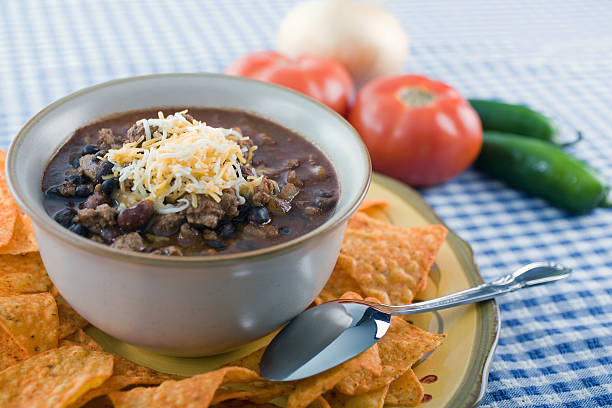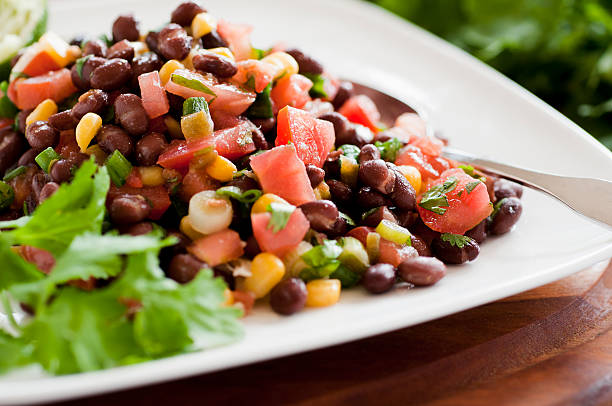Believe it or not, black beans are actually part of the legumes group (just as peanuts!) and are very easy to incorporate in any diet. One of the curious facts about black beans is that they are part of the traditional dish on most Latin American cultures, meaning they have overcame cultural boundaries to become a valuable food type in so many different parts of the world. Have you tried any of these?
On a health related note, black beans are well known for their protein and fiber content, in addition to being a source of vitamins and minerals that bring major health benefits, which have been studied by researchers for a long time now.
Evidence suggests that diets that include black beans allow to manage cholesterol levels efficiently, they also reduce the risk for metabolic syndrome as well as for the development of heart diseases and diabetes.
Let’s review these benefits…

Read our popular article – Importance of Madhu or Honey in Ayurveda
Black beans are a source of resistant starch
Resistant starch, a fiber- type nutrient, that is not processed by the small intestine and that has been linked to most of the health benefits of regular fiber, such as Type 2 diabetes prevention and management, an increased calcium absoprtion and treatment of inflammatory bowel disease, among others.
Same as fiber, resistant starch is also an ideal nutrient when we are trying to protect our gastrointestinal health. It has been proven that black beans consumption has a beneficial effect on the intestinal microbiota and overall health, by reducing the percentage of body fat, glucose levels and energy expenditure.
These results suggest that black beans are a good option to prevent higher levels of TMAO (a toxin, usually present in red meats) in our body and also with weight management purposes.

Management of blood sugar levels
Legumes, such as black beans, contain a very low glycemic index. This basically means its consumption will not cause major changes in blood sugar levels, which is great for prediabetic or diabetic patients, as well as for any other person who is struggling with insulin sensitivity.
Research in the topic has confirmed that black beans, and especially when combined with rice or chickpeas, improve our bodies’ glycemic response.
These results have major dietary implications in the treatment of diabetic patients and suggest that mixed consumption of these ingredients every day can get good health results.

Cancer prevention
Ok, this is a big one and a game changer for sure. Although further research needs to be done to understand all the benefits of black beans in cancer prevention – and treatment – initial research has confirmed that since black beans consumption is linked to a more controlled apetite and less body fat, it can significantly reduce colon cancer incidence.
The implications of these results in the medical and pharmacologic industry, can be huge.
One of the reasons why black beans can be good to prevent cancer – and other chronic and/or degenerative diseases – can be related to its high content of antioxidants, such as flavonoids and saponins; which help prevent cell damage due to the action of free radicals.
In this sense, the protective effect of black beans consumption in our cells function has been confirmed several times, proving its value for protecting even from genetic – DNA – damage.

Reducing Cardiovascular risk
Yes, believe it or not, the nutrients contained in black beans can be especially helpful to improve cardiovascular health, this is partly due to its high antioxidants content and their effect on insulin control.
It also helps that they allow to meet the required carbs, fiber and protein intake while reducing fat consumption, which is great for your body, but especially for your heart function.
Furthermore, it has also been proven that black beans consumption can also lower cardiovascular risk through its influence on cholesterol lowering, lipid and lipoprotein metabolism, and reduction of plaque formation in the aortic arch.
Research in the topic has also found that blood pressure was lower after consuming black bean compared to rice and pinto bean meaning that they elicit a positive effect on the tensile properties of blood vessels, helping our heart work better.
What this means is that black bean consumption will bring:
- Lower risk of heart attack
- Lower risk of developing a cardiovascular chronic disease
- Benefits for blood pressure management

How should I eat my black beans?
We know you can include black beans on pretty much any type of diet. But eating them is not enough…
If you really want to take advantage of all the antioxidative properties of black beans, you need to be careful on how you cook them. Yes, different procedures will bring different results and might even reduce the benefits you get from your beans.
For example, it has been proven that adding new processed ingredients or cooking black beans in a certain way might even a null its positive effects on cholesterol levels and blood pressure.
So, for example, it has been proven that steam processing (compared to boiling or soaking) exhibited several advantages in both appearance and texture of the cooked beans, resulting in a shortened processing time, and in a greater retention of antioxidant activities.
Therefore, it is suggested to use steam processing to develop high‐quality health‐promoting black bean dishes.
In the other hand, it has been proven that eating foods that have been processed with compounds of black beans (for example, those that used black beans as a natural food colorant) can also bring health benefits as long as they maintain their properties. This means you can get all the benefits of black beans while eating other foods.
